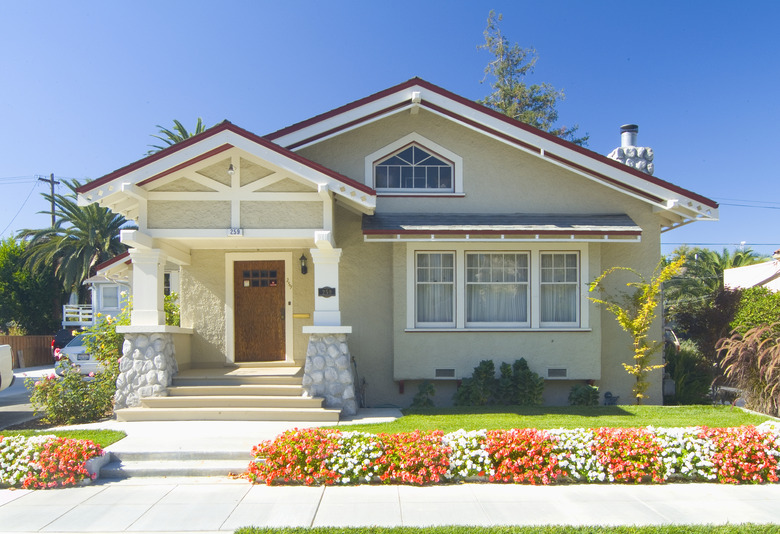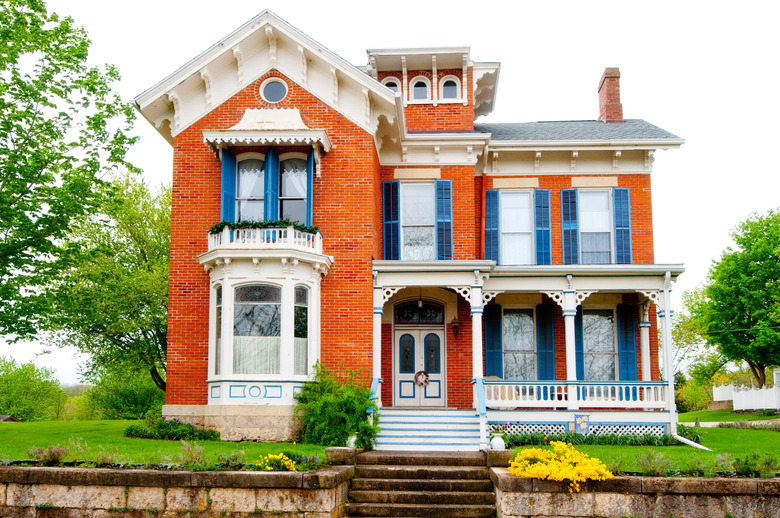6 Things To Look For When Buying A House
House hunting can be a whole lot easier if you have your priorities straight because if you do, you'll know what to look for as you scroll through listings. Perhaps your number one priority is a safe neighborhood or a home that's close to work, and of course, you want to keep your search results limited to homes that are within your price range. Above personal priorities, however, are some things that universally define the desirability of a property, such as its overall condition, and you can often suss out deal-breaking problems well before you make an offer and schedule a home inspection.
A new home is a major purchase that will help determine your peace of mind as well as your financial well-being for the foreseeable future. To make your search for a new home as thorough and productive as possible, you should look for the following six things.
1. A Good Real Estate Agent
1. A Good Real Estate Agent
The homebuying process, from house hunting to closing on a purchase, is a long one with many potential pitfalls, and it's a mistake for first-time homebuyers to try to get through it without a real estate agent. A good real estate agent is one who understands your needs as well as the local market and who has the connections to make a deal happen. The agent is also usually connected to a brokerage firm with staff who can handle all the paperwork you need to complete the sale correctly and in a timely way, which is important if you want the deal to go through.
It might take some shopping around to find an agent with whom you click, especially if you're moving to a new area, but unless you've bought homes before and are familiar with the process, this is the first thing you should seek.
2. Preapproval From a Lender
2. Preapproval From a Lender
All lenders are not created equal, and to get the best loan rates and terms, you'll probably have to make several inquiries and conduct more than one interview. Rather than waiting to do this until after you've found a home that meets all your preferences — and risk losing in a bidding war — you should find a lender before you start looking.
Once you find one, don't put off going through the preapproval process because having that letter in hand puts you in an even stronger position to make a successful bid than you would be if you only have a prequalification letter, which almost any lender will give you. You'll be preapproved for a specific amount, and rather than being a limitation, it's actually a good thing because it will save you the disappointment of finding the perfect property and discovering that it's out of your price range.
3. The Right Location
3. The Right Location
Maybe you know exactly where you want to live based on your job or your preference for a certain neighborhood, in which case there isn't much need to research neighborhoods. You'll have a lot more options, however, if you can be flexible about your new home's location, and it pays to research neighborhoods because some are better than others. When checking out potential neighborhoods, most homebuyers prioritize the following:
- Safety: You want to live in a safe neighborhood, not one known for crime and frequent vandalism. Several internet tools can help you find safe neighborhoods.
- Walkability: Almost two-thirds of home seekers identify the walkability of the neighborhood as a top priority. The most walkable neighborhoods are usually also the most congenial.
- Proximity to shopping and services: If you have to get in the car every time you need something in town, you'll be using more gas and spending more time in traffic.
- Friendliness and community: To get a personal feel for a particular neighborhood, it's a good idea to go there and walk around. You might not want to do this until you actually zero in on a home that's located there.
- Noise level: Noise level is one of the factors that people often overlook, given that the times of day for house viewing are often the quietest. If the house is near a busy thoroughfare, the noise level could increase dramatically in the early morning when rush hour begins. Similarly, loud neighbors usually don't make themselves known until late at night when you're trying to sleep. Be sure to specifically address this issue with the seller's agent, or better yet, take a few walks through the neighborhood at different times of day.
4. A House That Suits Your Needs
4. A House That Suits Your Needs
Your new home has to suit your family's needs, and hopefully, it will have a few bonus features too. These days, listings usually include virtual walk-throughs, which are especially useful if you're moving far from your current home, but they aren't a substitute for a physical walk-through during an open house. If you can't be there yourself, a good real estate agent will be able to arrange a proxy to take photos and make notes about the following:
- HVAC: You'll want to know whether the heating system is gas or electric, and you'll want to verify that it's in good working order. If you're like 78 percent of homebuyers, you'll also want to verify that there's a working air conditioning system.
- Water and waste management: Your potential dream house may be on a problem-free municipal system, but if it's in the country and has a well and septic system, both deserve close scrutiny, especially the well. Get data about the flow rate and water quality.
- Floor plan and number of rooms: If you have a large family and you need privacy, an open floor plan might not work for you. You'll want to find out the number of bedrooms and bathrooms in the house, their size and their condition. One person's bedroom could be another person's hole in the wall, and even though the house description lists four bedrooms, they might not all be equally usable.
- Outdoor space: If you're searching in a crowded neighborhood, look for a house with a private outdoor space. You don't have to like the landscaping because it doesn't cost that much to change it, and you'll probably want to do that anyway after you move in. Some features could be a deal breaker, however, such as an old, out-of-service swimming pool or a dilapidated shed that needs to be demolished and removed.
5. A House That's in Reasonably Good Condition
5. A House That's in Reasonably Good Condition
Maybe you're looking for a fixer-upper to renovate and turn into your dream home, but if you're like most people, you want a home that's ready to move into. That's doesn't mean the house is in perfect condition — no house is — but it means you won't have to complete any major renovations, such as replacing the roof or repairing the foundation, before you can feel comfortable and safe living there. Even though a house in less than ideal condition will probably cost less, renovations can be a hassle, and they often go over budget. Some red flags include:
- Sagging roof: When a roof sags, that usually means it has to be replaced. The previous owners may have been content to live with it, but if you buy the home, you'll have to deal with it at some point, and you could be inheriting an expensive problem. If you suspect roof problems, you should invest in a roof inspection, which is conducted by a licensed roofer and is an extra expense over and above the usual home inspection.
- Water damage: Be wary of a home that has been through a disaster, such as a flood or a major plumbing leak. The previous owners may have patched things up, but mold could be lingering in the walls, and some part of the structure may be rotting and may need to be replaced. Note any unpleasant odors or black spots on the walls or ceiling.
- Old insulation: If you're looking at an older house built before 1980, some of the insulation may be asbestos. This is a major headache if you plan to do anything that disturbs it, such as remodeling or upgrading the insulation. Asbestos insulation requires professional removal according to strict procedures.
- Galvanized plumbing: Many older houses have galvanized steel plumbing, and it may still be working well, but chances are it won't be in a few years, and you'll be forced to replace it. When testing the faucets, if you notice less than normal water flow, the pipes could have advanced corrosion and may need immediate replacement.
- Old furnace: Furnaces typically last from 10 to 25 years, so if you're looking at a house with a furnace that is 20 years old, you should expect problems in the near future. You might be able to persuade the seller to figure in the cost of a new furnace when calculating the closing expenses.
- Uneven floors/cracks in the foundation: If you feel like you're going uphill when walking across the living room floor or the doors and windows stick and are hard to open and close, you've come across a strong indication of foundation problems. Cracks in the foundation are another sign of the possible need for major foundation work.
6. A House Not in a Flood or Fire Zone
6. A House Not in a Flood or Fire Zone
As the effects of global warming become more severe, an increasing number of localities around the country are prone to seasonal floods or fires. Many of these localities are otherwise desirable, so if you're the gambling type, you may choose to do your house hunting there despite the danger.
If you do, you should be aware that you'll have to purchase additional insurance, and you might not be able to get insurance at all. Many mainstream companies stopped offering fire insurance in some areas of California after the devastating fires that occurred between 2016 and 2020, and the ones that still do often charge much higher rates and offer fewer benefits. Flood insurance, which will be required by your lender if you buy a house in a flood zone, can be similarly costly.


